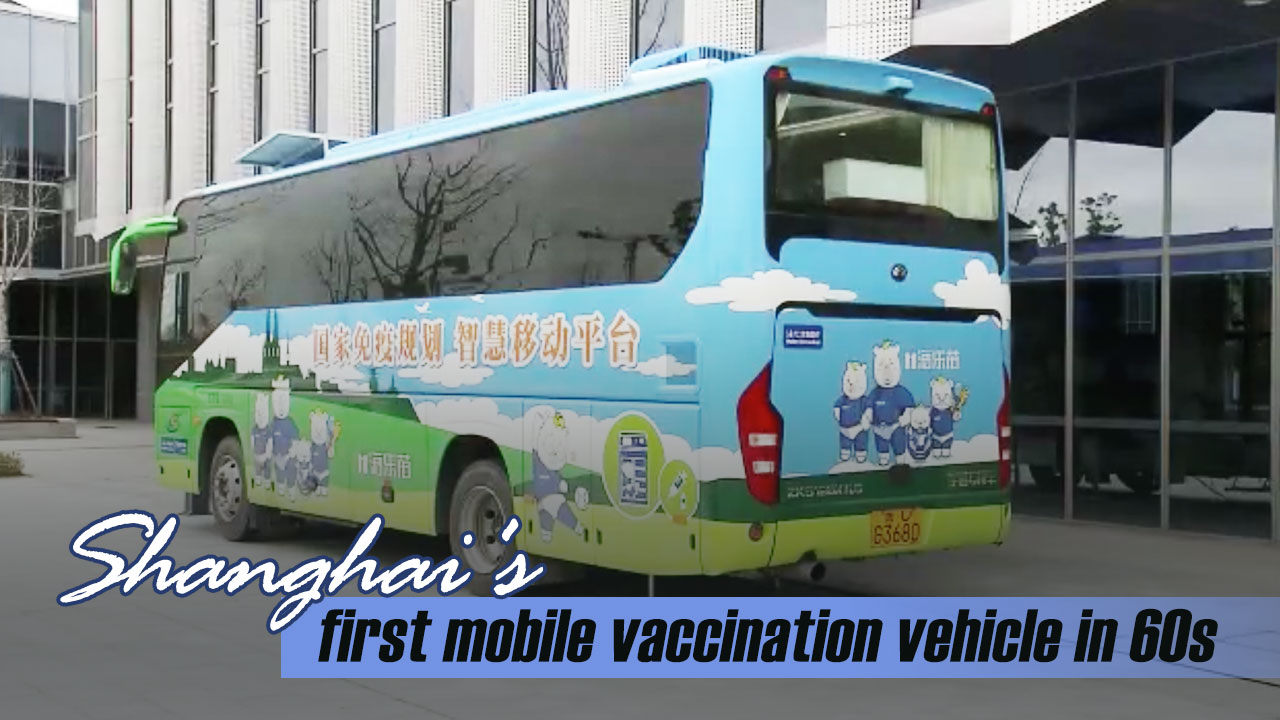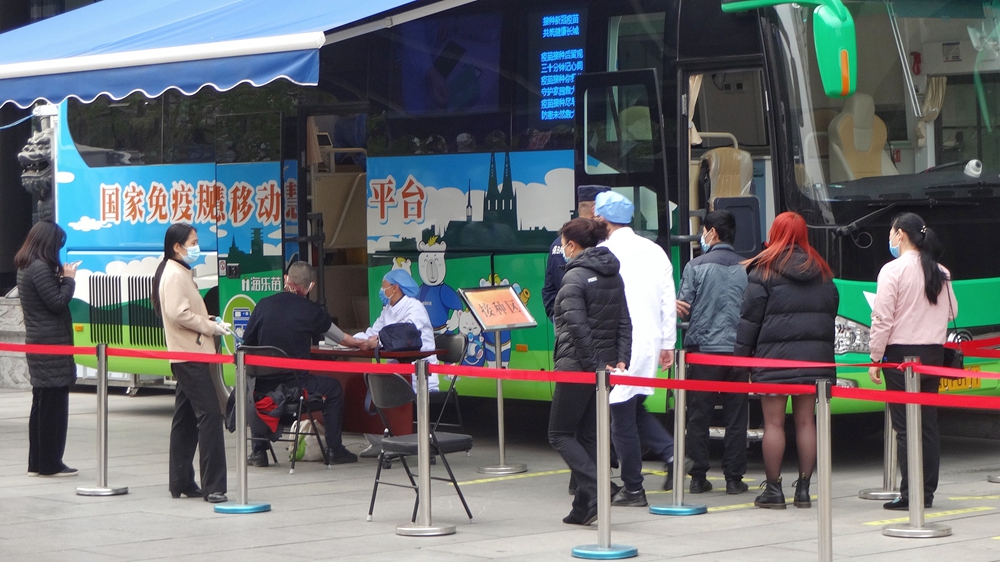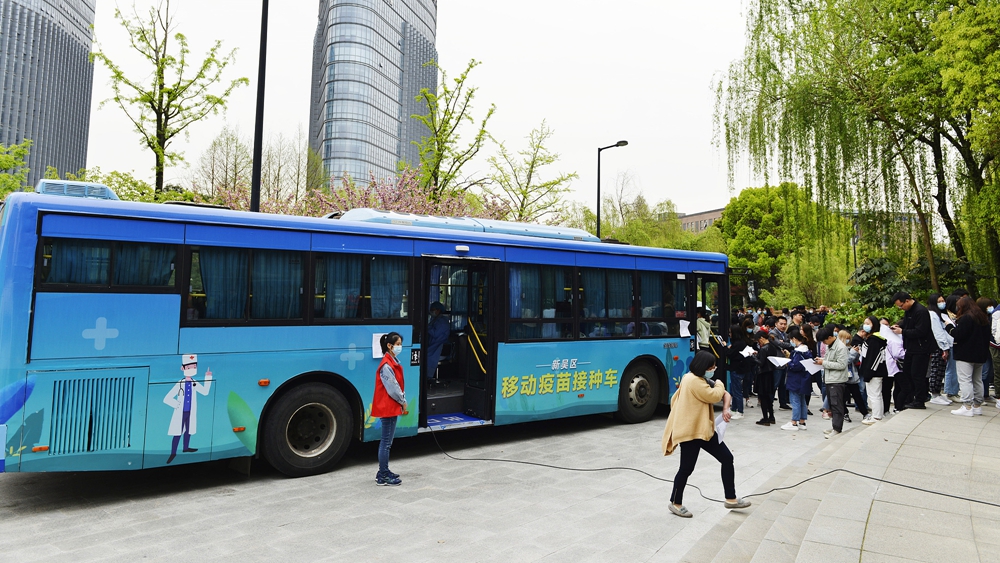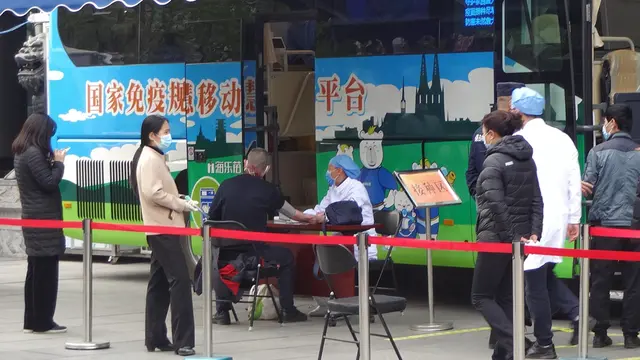00:59

Since late March, a bus-like vehicle has provided free COVID-19 vaccination services to residents in cities including Shanghai and Beijing to ensure a convenient and efficient prevention against the COVID-19 as the country speeds up vaccination to achieve herd immunity early 2022.
Much like a mobile vaccine clinic, a vaccination vehicle is equipped with vaccination stations, medical refrigerators and first-aid equipment. The refrigerators are able to store 1,200 vaccine doses.
Once it arrives at a location, medical personnel begin offering a one-stop service for registration, disinfection and vaccination. The vehicle is said to enable busy white-collar workers to receive shots from the comfort of their workplaces, saving time and improving inoculation efficiency.
The onboard 5G communication system can report real-time injection data to local centers for disease control and prevention (CDC).
"This is the first time I have ever seen such a mobile vaccination vehicle. It's so convenient to get vaccinated near the company," a vaccine-taker surnamed Zhang said.

A medical worker checks blood pressure before a COVID-19 vaccination bus in Beijing, April 10, 2021. /CFP
The mobile vaccination clinics can also reach people such as the elderly, the handicapped and those who do not have access to transportation.
A vaccination vehicle carrying 800 vaccine doses rolled into a spacious street garden in western Beijing on Saturday. Zhou Zhijian, a 96-year-old resident accompanied by his son, arrived at the site in a wheelchair for a shot.
Wang Donghui, who is in charge of the mobile vaccination site, said there are nine communities with 70,000 residents living near the street garden. For some elderly people like Zhou, the vehicle shortens the distance from their home to the vaccination stations.
The mobile inoculation vehicles, which can vaccinate more than 150 doses in one hour, have ensured that vaccination in the country is both easy and efficient.
"Getting vaccinated in vehicles can reduce the public's concerns over cross-infection and help promote COVID-19 vaccination with high efficiency," said Cheng Hua, a product manager of Chinese automotive firm Foton Motor Group, which has a daily production capacity of 12 such vaccination vehicles.
The company provides vaccination vehicles for Beijing and neighboring Hebei Province starting this month.

People wait to aboard a COVID-19 vaccination vehicle in Wuxi City, east China's Jiangsu Province, April 7, 2021. /CFP
Other cities including central China's Wuhan, southwest China's Chongqing and east China's Wuxi have also deployed the vaccination vehicles in campuses, construction sites and commercial areas, to accelerate the country's inoculation pace.
"I hope that China's vaccination rate could reach 70 percent to 80 percent by early 2022 or even by the end of 2021, thus basically achieving herd immunity," said Gao Fu, head of the Chinese CDC.
Wang Huqqing, chief vaccination planning expert at the Chinese CDC, echoed with Gao, saying that "to reach a herd immunity, at least one billion people need to be inoculated with COVID-19 vaccines," in an interview with CCTV News.
According to the National Health Commission, more than 167 million doses of COVID-19 vaccines had been administered across China as of Sunday.
Although in the past week, the number of single day inoculation doses increased greatly from three or four million to seven million, but the overall inoculation rate (around 12 percent) is rather lower in comparison with the countries whose vaccination rate reached 40 percent or 60 percent, said Wang.
With higher vaccination rate, there will be more solid herd immunization, said Wang, adding that there is still a long way to go.
(With input from Xinhua)
 简体中文
简体中文

